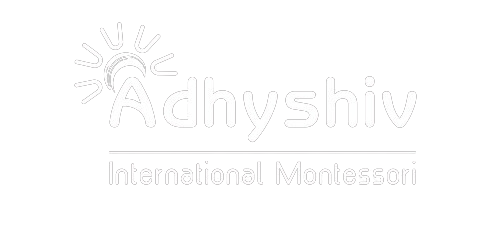- Info@adhyshiv.com
- +91 78711 11111
- Mon - Fri 08:30 - 16:00
- Info@adhyshiv.com
- +91 78711 11111

Menu


“Quick answers to common queries about our Adhyshiv International Montessori school, curriculum, and policies.”




2 – 6 Year’s

6 – 12 Year’s
Students are admitted into the Primary environment twice a year. The first slot is in June and the second in October. For all other environments, children are admitted only at the beginning of the academic year and the admission process is carried out in March and April.
Montessori takes into account the different paces of learning of children and brings together children of specific age groups. This provides ample time for the children to learn through repetition, which helps children build a strong base of basic concepts. There is also emphasis on multi-sensorial learning, hence children with mild developmental delays or learning disabilities tend to do well in a
Montessori environment. However, each situation has to be evaluated carefully to ensure that the program meets the needs of
the child in question.
The Primary students follow an integrated Montessori syllabus.
We maintain a low ratio to ensure undivided attention for each child. The ratio is 1:15 for our
Montessori environments.
The Primary environment is for children between 2 and 6 years of age, the Lower This also promotes
peer observation and learning among the younger children and the older ones benefit being leaders
in the classroom community And be more responsible.
The Montessori adult is trained and has the required knowledge to handle the mixed ages and levels
of the children, through individualized, pair and group works.
Yes, co-curricular activities are compulsory. They are necessary for the holistic development of the
child including intellectual, physical, psychological and emotional aspects to make the child
independent and confident.
Parents are an integral part of the school and also their child’s progress in the school. There are
orientation programs, workshops, parent observations, events, and parent teacher meetings
throughout the year. There are plenty of opportunities for the parents to interact with the school /
teachers and be involved in their child’s school experiences. Parents are expected to be a part of all
these programs as it keeps them informed about their child’s progress and the philosophy of the
school.
Parents are an integral part of the school and also their child’s progress in the school. There are
orientation programs, workshops, parent observations, events, and parent teacher meetings
throughout the year.
Montessori teaching is based on individual, continuous and consistent observation of the child.
Repetition and in-class work allow for observation for the understanding of the child’s progress and
the child’s ability to follow the same.
AdhyShiv follows strict protocols for the students’ safety. Rules and guidelines are given to parents
and they are requested to follow the same at all times. Additionally, CCTV cameras have also been set
up in each environment to ensure that children are safe and monitored while working in their classes
and moving around the campus.
Currently we do not , but in future based on the request from multiple parents we shall have
it provided.